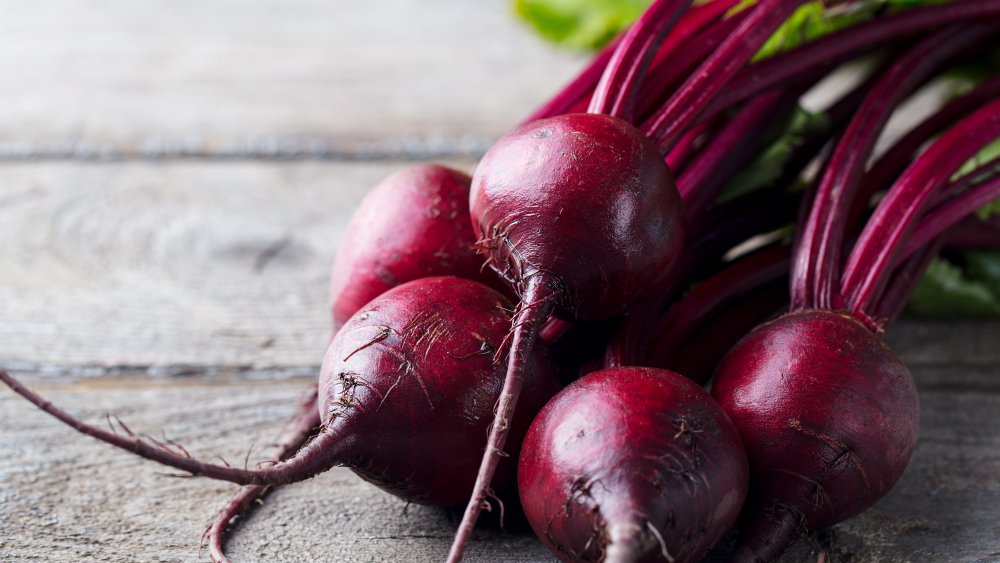This Is Why You Should Add More Beets To Your Diet
Beetroot, or beets, are a vibrantly colored root vegetable packed with healthy vitamins, minerals, and antioxidants (via Shape). Beets are low in calories, low in fat, and rich in vitamins and minerals such as magnesium, folate, potassium, vitamin C, and many more. While their taste may be polarizing — some people love the sweet earthy taste, while others insist it tastes like dirt — beets actually have many health benefits and are recommended as part of a well-balanced healthy diet.
Studies have shown that consuming beets can lower your blood pressure (via Healthline). Beets are rich in nitrates, which are converted to nitric oxide in the body. Nitric oxide dilates blood vessels leading to decreased blood pressure. Blood nitrate levels remain elevated for approximately six hours after consumption, so while the effect on blood pressure is temporary, incorporating beets into your regular diet can yield a more consistent result. A decrease in blood pressure improves overall cardiac health and helps decrease the risk of developing heart disease, stroke, and heart failure.
The vasodilating properties of nitric oxide not only help reduce blood pressure and improve overall cardiac health, they also support brain health and cognitive function. Nitrates in beets help dilate the vessels nourishing your brain and with adequate blood flow, the brain can work more effectively. One study compared cerebral blood flow to frontal lobe white matter in people with high nitrate versus low nitrate diets (via Nitric Oxide). This area of the brain aids in higher-level thinking, like decision making. The study found those who consumed a diet high in nitrates demonstrated higher levels of cerebral perfusion. While this is an important finding, more studies are needed to further support these claims.
Additional health benefits of beets
In addition to nitrates, beets also contain betalains, antioxidant and anti-inflammatory compounds, which are responsible for the root's vivid colors. Along with helping reduce inflammation throughout the body, betalains are important for many cellular functions and help protect the cell against oxidative stress, which typically causes cell damage over time (via Consumer Reports).
Beets are also known to help improve digestion due to their high fiber content. They aid in feeding good gut bacteria and regulating bowel movements. Beets have also been touted as an athletic supplement, improving athletic performance. It is thought that the nitrates in them improve the efficiency of mitochondria, the "powerhouse" of the cell, increasing cellular energy and affecting oxygen use.
Whether you eat beets raw, boiled, steamed, canned, juiced, or in any other form, the bottom line remains that they have some pretty worthwhile health benefits. They also have the uncanny ability to be incorporated into your diet in such a variety of ways, whether it's in salads, smoothies, juices, and you can consume the leaves, just the roots, or both. So stock up on beets and enjoy the health benefits.


